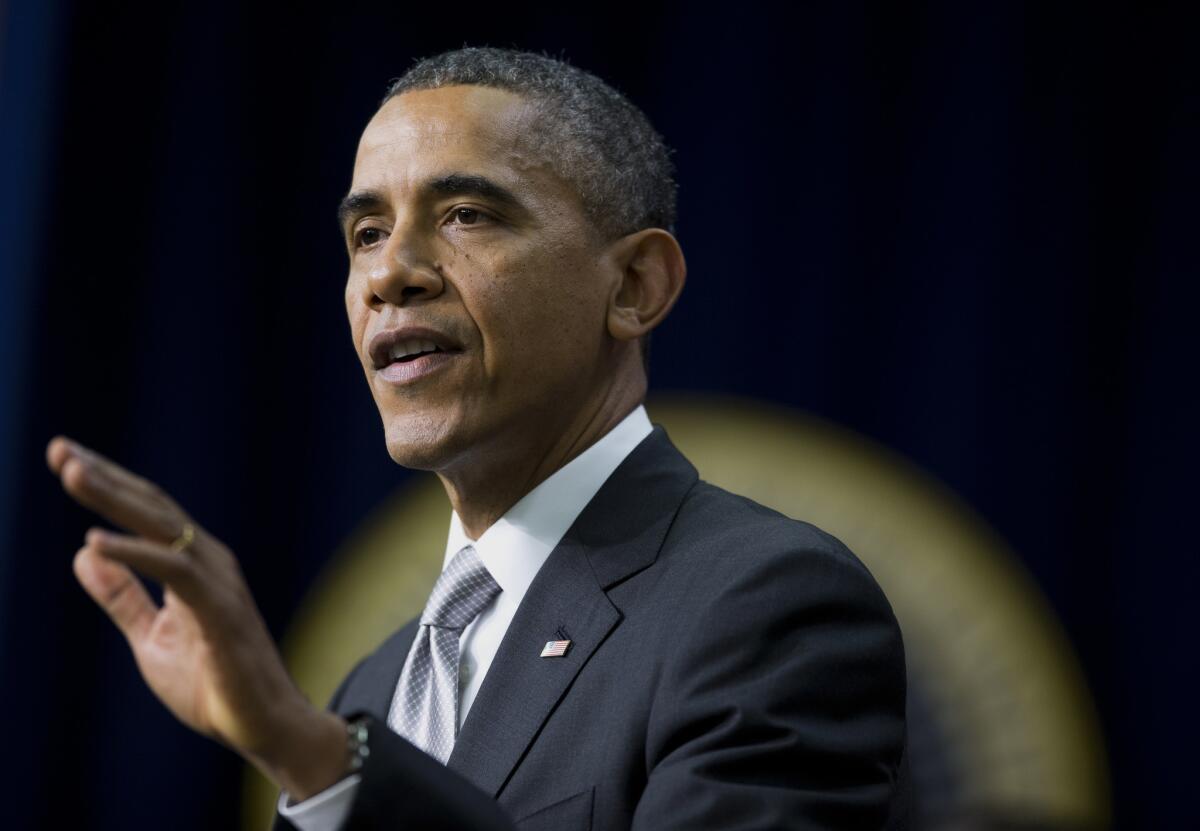Beware an unchecked president

In the face of congressional gridlock, President Obama has started taking more and more matters into his own hands. In recent months, he has announced new gun control measures, put in place limited immigration reform and made fixes to the Affordable Care Act — all without Congress. Many liberals who once worried about presidential overreach have applauded his robust use of presidential power.
Yet the president’s increasing unilateralism shouldn’t be cause for celebration. Bypassing Congress means bypassing democratic checks. It also means giving up on government’s ability to effectively address serious long-term challenges. The solution to a dysfunctional Congress isn’t an unchecked executive; it’s a Congress that actually works.
A first step in that direction was taken recently with the banning of filibusters for executive branch nominees and federal judges below the Supreme Court.
YEAR IN REVIEW: Washington’s 5 biggest ‘fails’ of 2013
The filibuster is not part of our nation’s constitutional design. To the contrary, the framers rejected supermajority requirements except in limited circumstances, such as impeaching the president and ratifying treaties. Alexander Hamilton wrote in Federalist No. 22 that if “a pertinacious minority can control the opinion of a majority,” there would be “tedious delays; continual negotiation and intrigue; contemptible compromises of the public good.” As a result, the government would often be “kept in a state of inaction.” Sound familiar?
However, the framers certainly wouldn’t have approved of the president responding to this “state of inaction” by simply going around Congress and exercising unilateral powers.
When President George W. Bush was in office, Democrats criticized his go-it-alone approach — his insistence, for example, that he could launch military attacks without Congress’ blessing, or unilaterally tighten restrictions on the use of stem cells in federally funded research. But the last five years have shown that many on the left are willing to turn a blind eye to unchecked executive action when a Democrat is in the White House.
YEAR IN REVIEW: Highs and lows from Obama’s roller-coaster year
It’s no mystery why. Congress has proved a graveyard for serious action on almost every issue. Obama, a professor of constitutional law who once criticized executive unilateralism, has acted alone mainly because it’s the only way he can get anything done.
But while Democrats have the presidency now, they won’t hold it forever. In the meantime, they’re feeding a beast that will be extremely difficult to control in the future. And the policy achievements could prove ephemeral. Anything Obama can achieve alone, a successor can potentially undo.
Worse, the Democratic embrace of unilateralism feeds the cycle of dysfunction. It strips responsibility from Congress, removing whatever is left of the incentive for compromise. And some things near and dear to the hearts of Democrats, such as improving our anemic economy, simply can’t be achieved through executive fiat.
Republicans should also want to fix the status quo. The political branch where they’re strongest is increasingly weak, and things are only going to get worse. After all, even if filibuster reform applies only to judicial and presidential nominees, it will substantially increase the power of the man in the Oval Office they love to hate. He will find it much easier to fill vacancies in the executive branch and federal courts with appointees who will carry out and legally protect executive initiatives. That’s bad for Republicans and the republic.
So what can be done? First, end the filibuster for good — for everything. As we just saw, the majority of the Senate has the power to do this. Yes, the filibuster gives every senator enhanced power to grind government to a halt. But that very same power makes each senator part of an institution that is growing more unpopular and irrelevant by the day.
Second, fix the broken budget process. The federal government should run on last year’s budget if Congress can’t agree on a new one. That would end the opportunities for endless hostage-taking and prevent costly shutdowns. (And while we’re at it, it is well past time to eliminate the redundant debt-ceiling vote, which has caused so much havoc.)
Third, bring transparency to lobbying and campaign donations, and pursue efforts to reduce candidates’ reliance on big donors and powerful lobbyists. Congress won’t be truly accountable to the people until the pull of narrow, wealthy interest groups and intense party activists is weakened.
The hard part, of course, isn’t coming up with sensible reforms in these areas (and we’ve merely hinted at an agenda). It’s getting Congress to put them in place. No one should expect a short or easy struggle. But maybe the only thing the parties can agree on is that the president should not be governing the country alone. If so, there’s a chance filibuster reform could be just the start.
Jacob S. Hacker is a professor of political science and director of the Institution for Social and Policy Studies at Yale. Oona A. Hathaway is a professor of law and director of the Center for Global Legal Challenges at Yale Law School.
More to Read
A cure for the common opinion
Get thought-provoking perspectives with our weekly newsletter.
You may occasionally receive promotional content from the Los Angeles Times.










